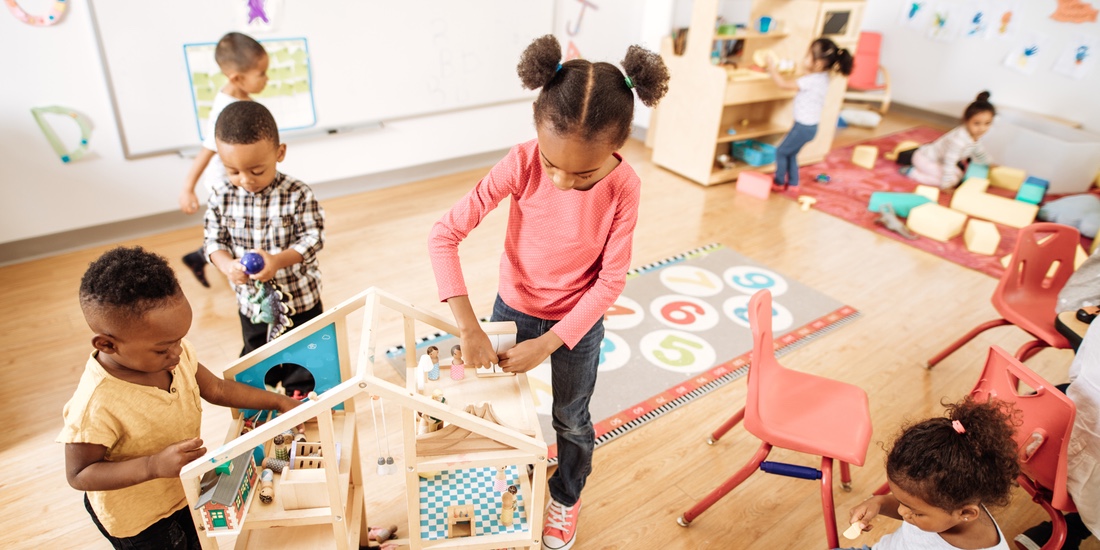Are you in the midst of visiting preschools and trying to decipher what to look for in a classroom and what to ask? Learn from early childhood educators with more than four decades of classroom experience.
Learn
Basic Concepts
Choosing a preschool is a very important decision. We know that early childhood matters; experiences in early life can have a lasting impact on later learning, behavior and health.
Choosing a school is as much about what is right for your child and for your family, as it is about what is ‘good’ from an outside marker. We encourage parents to think about:
- What you know about your child, as a learner and a person.
- What you want for yourself as a parent – your child’s school will be your community as well.
Resources from the National Association for the Education of Young Children
Do
Questions to Ask a Preschool
Supervision
- What kind of training, education and professional development do the teachers have?
- What are the ratios of adults and children in the room?
- Does it change throughout the day? (preschool / 3-5 year olds should be 1:8 or less)
- If there are aides or assistant teachers included in these ratios, what are their training and education requirements?
- What does a typical daily schedule look like?
- How much time is allotted to child-directed activities? To child-directed play?
- How often and for how long are children expected to sit in one place?
- A developmentally appropriate program would ask for no more than 20 minutes at a time.
- Are students required to be potty trained?
Curriculum and Learning Philosophy
- What is the school’s curricular philosophy? Ask them to explain what that means for this school, and what it looks like in practice. (For example, two programs that follow Montessori curriculum may still look very different in practice).
- We encourage you to think about what you are comfortable with and what you want for your child.
- Opinions and preferences among families and teachers will differ. i.e., more emergent and discovery-based curriculum in which children are constructing their own knowledge vs. more teacher-led.
- Research indicates that students who are engaged in meaningful, student-directed work are eager to acquire the embedded skills necessary to achieve their own goals.
- Our favorite evidence-based books on active engaged learning: The Power of Play and The Play’s the Thing.
- Montessori, Waldorf, Reggio Emilia, what else? Compare preschool philosophies.
- What is the school’s approach to teaching literacy and math concepts? (The answer to this will tell *a lot* about the program.)
- We believe a developmentally appropriate classroom will incorporate letter knowledge, literacy and math concepts into activities, play and routines throughout the day.
- Some early childhood programs use drills, worksheets or flashcards in what they may call an “academic” preschool.
- Play-based vs. academic? Learn more.
- How does the school focus on social-emotional learning?
- Look for an explanation that social-emotional learning (SEL) is valued and prioritized during the day.
- Often classroom morning meetings involve this type of learning, or a separate time is designated for SEL.
- Look for an explanation that social-emotional learning (SEL) is valued and prioritized during the day.
- Are children allowed and supported to speak their home language? What kind of support does the school provide for language learners?
- Is there homework? What does it look like? What is your family’s philosophy on homework?
- When children struggle with learning:
- What systems and supports are in place for struggling students?
- While there is a wide range of when children acquire skills, schools should have systems in place to identify children who are not making expected progress and implement interventions.
- Are teachers looking for learning differences? If so, how is this addressed?
- The short answer should be “Yes”. Learn more here.
- Does the school practice inclusion with children with special needs?
- Are they part of the student body and integrated into general education classrooms?
- What systems and supports are in place for struggling students?
- How does peer diversity translate into your school’s learning pedagogy and curricula?
Conflict and Problem-Solving
- What is the school’s approach to guidance and discipline?
- What is expected of children, how is it communicated, and what happens when a child does not do what is expected of them?
- How does the school approach problem-solving skills? Self-help skills?
- How do teachers address conflict at school?
- Is there a school-wide philosophy on conflict resolution?
- When a child is struggling with another child’s behavior, what happens?
- When there is a conflict among children, what systems are there for a child to seek help?
- What is taught to the children to help them become more independent in this work?
- When a child is struggling with self-regulation, what happens?
- What tools and techniques are encouraged?
Communication with Parents
- How does the school typically communicate with parents?
- Via email, parent-teacher conferences, town halls, etc.?
- What is the school’s expectations of parents?
- How many and when are parent teacher conferences?
- Does the school have an “open-door” policy?
- Do you think your school should have an “open-door” policy? If so, ask them about it.
- Are parents allowed to be in the classroom at any time?
- Are they prohibited from being in the classroom at any time? Why?
- How does the school track and assess student learning?
- How is this shared with parents?
*Note – In our opinion, this list will meaningfully reflect a great deal about a school and give you a strong indication of how it operates. However, this is not an exhaustive list.
